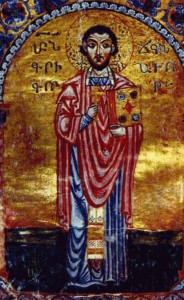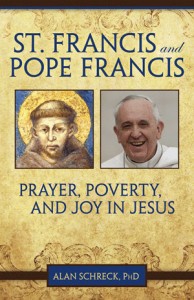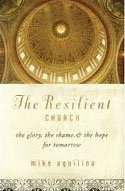[powerpress]
Dr. Matthew Bunson discusses the life, times and teachings of St. Gregory of Narek
 Born: 951 Rshtunik, Vaspurakan, Bagratid Armenia
Born: 951 Rshtunik, Vaspurakan, Bagratid Armenia
Died 1003 Narekavank, Vaspurakan, Armenia
Feast 13 October (Holy Translators day); 27 February (Roman Catholic Church)
For more on St. Gregory of Narek and his teachings visit this excellent website:
“Speaking with God from the Depths of the Heart”
From the Vatican Insider:
Pope Francis has approved the decision of the Congregation for Saints. The Armenian saint was born in 950 AD in present-day Turkey
An Armenian saint has been declared a Doctor of the Church. In last Saturday’s audience with the cardinal Prefect of the Congregation for the Causes of Saints, Pope Francis approved the proposal put forward by the Plenary Session of the Congregation, agreeing for the title of Doctor of the Universal Church to be conferred upon Gregory of Narek.
 St. Gregory, a priest and monk, was born circa 950 AD in Andzevatsik (formerly Armenia, present-day Turkey) to a family of writers. He died circa 1005 in Narek (formerly Armenia, present-day Turkey). His father, Khosrov, was an archbishop. Having lost his mother at a young age, Gregory was brought up by his cousin, Anania of Narek, founder of the local school and village. The saint lived most of his life in the monasteries of Narek (in what was once called Great Armenia), where he taught at the monastic school. He is considered one of Armenian literature’s greatest poets.
 The cult of St. Gregory of Narek will be marked on 27 February in the Roman Martyrology. He will be defined as “monk, doctor of the Armenians, distinguished for his writings and mystic scienceâ€.
 The papal decision comes just weeks before Francis is due to commemorate the centenary of the Armenian massacre on 12 April in St. Peter’s Basilica. The Medz Yeghern as the Armenian massacre is called, took place in 1915.
For more from Dr. Matthew Bunson check out his Discerning Hearts page
Dr. Matthew Bunson, Senior Fellow of the St. Paul Center for Biblical Theology, is one of the United States’ leading authorities on the papacy and the Church.
His books include: The Encyclopedia of Catholic History; The Encyclopedia of Saints; Papal Wisdom; All Shall Be Well; Encyclopedia of the Roman Empire; and The Angelic Doctor: The Life and World of St. Thomas Aquinas; The Pope Encyclopedia; We Have a Pope! Benedict XVI, the first Catholic biography of the Holy Father in the English language; the Encyclopedia of U.S. Catholic History; Pope Francis. His also the editor of OSV’s “The Catholic Answer” magazine.
This entry was posted on Tuesday, March 3rd, 2015 at 11:26 am
You can follow any responses to this entry through the RSS 2.0 feed.
How can the Crusades be considered “glorious”? That was the first question that popped up in my mind when I saw “The Glory of the Crusades” come across my desk.  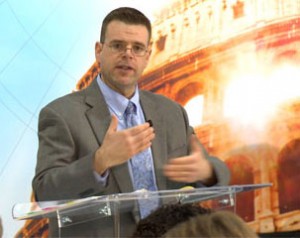 As I found myself caught up in the history unfolding inside the pages of this incredible book, I found that author Steve Weidenkopf approached this subject in an incredibly balanced, engaging and thoughtful way. By far one of the best books I have ever read on the subject. Steve is a lecturer of Church History at the Notre Dame Graduate School of Christendom College and the creator and author of Epic: A Journey through Church History, an adult faith-formation program on the 2,000-year history of the Church. Meticulous researched (just check out the end notes), with little hint of any political agenda, Steve lets history stand on its own solid clear footing. Thank you Catholic Answers for this outstanding book!
As I found myself caught up in the history unfolding inside the pages of this incredible book, I found that author Steve Weidenkopf approached this subject in an incredibly balanced, engaging and thoughtful way. By far one of the best books I have ever read on the subject. Steve is a lecturer of Church History at the Notre Dame Graduate School of Christendom College and the creator and author of Epic: A Journey through Church History, an adult faith-formation program on the 2,000-year history of the Church. Meticulous researched (just check out the end notes), with little hint of any political agenda, Steve lets history stand on its own solid clear footing. Thank you Catholic Answers for this outstanding book!
[powerpress]
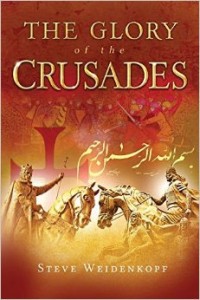 You can find the book here
You can find the book here
The Glory of the Crusades is valuable not only as history but also as a scholarly debunking of centuries of Protestant and Enlightenment distortion of the facts about the West s struggles against militant Islam. –Rev. C. John McCloskey Research fellow, Faith and Reason Institute
This excellent book employs decades of scholarly research to show average readers what medieval historians have long known that popular culture s image of the Crusades has nothing at all to do with the events themselves. Catholics who cringe at the mention of the Crusades will find in this work a surprising and inspiring story of faith. –Thomas F. Madden Director, Center for Medieval and Renaissance Studies, Saint Louis University
This entry was posted on Monday, February 9th, 2015 at 4:12 pm
You can follow any responses to this entry through the RSS 2.0 feed.
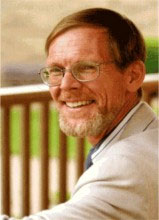 In “St. Francis and Pope Francis: Prayer, Poverty, and Joy in Jesus” Dr. Alan Schreck provides wonderful insights on the connections between Pope Francis and St. Francis. Much has been written about the “Jesuit” nature of the pontificate of Pope Francis, but not as much about the “Evangelical” spirit which unites the hearts of the Francis who lived 900 years ago and the pontiff who claimed his name. Dr. Schreck is an engaging writer, who is capable of not only sharing relevant history of the past, but is gifted in making it come alive and meaningful for our lives today. A fascinating work!
In “St. Francis and Pope Francis: Prayer, Poverty, and Joy in Jesus” Dr. Alan Schreck provides wonderful insights on the connections between Pope Francis and St. Francis. Much has been written about the “Jesuit” nature of the pontificate of Pope Francis, but not as much about the “Evangelical” spirit which unites the hearts of the Francis who lived 900 years ago and the pontiff who claimed his name. Dr. Schreck is an engaging writer, who is capable of not only sharing relevant history of the past, but is gifted in making it come alive and meaningful for our lives today. A fascinating work!
[powerpress]
You can find the book here
From the book description:
Dr. Alan Schreck explores the times and messages of St. Francis of Assisi and Pope Francis, bringing together their shared emphases, including:
- Conversion — their stories are different but their message the same: turn to God
- Prayer – union with Jesus is for everyone
- Poverty – the imitation of Christ heals and restores
- Church – faithfulness is the foundation for renewal
- Mission – the same in every age: share the Gospel
- Joy – the hallmark of Catholic life and possible for us today
This entry was posted on Monday, February 9th, 2015 at 3:22 pm
You can follow any responses to this entry through the RSS 2.0 feed.
[powerpess]
“How the West Really Lost God: A New Theory of Secularization” is a phenomenal book on this subject.
Mary Eberstadt 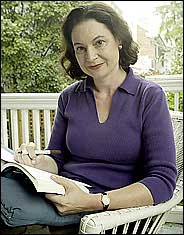 delivers a compelling theory about the decline of Christian religion in the Western world. By the analysis of data on the family,  from pre-Revolutionary France to contemporary culture in the West, she demonstrates how the natural family is the prime nurturing force for Christianity in a society.  When that family structure dissolves, so does the Christian religion in a culture and the rise of secularization is fostered.  While presenting the problem, she also offers hope for the future.  Another  fascinating and provocative read. by Mary Eberstadt!
delivers a compelling theory about the decline of Christian religion in the Western world. By the analysis of data on the family,  from pre-Revolutionary France to contemporary culture in the West, she demonstrates how the natural family is the prime nurturing force for Christianity in a society.  When that family structure dissolves, so does the Christian religion in a culture and the rise of secularization is fostered.  While presenting the problem, she also offers hope for the future.  Another  fascinating and provocative read. by Mary Eberstadt!
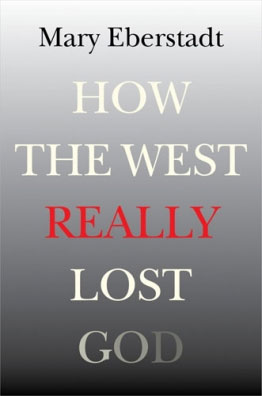 You can find the book here
You can find the book here
— Mary Ann Glendon, author of The Forum and the Tower: How Scholars and Politicians Have Imagined the World from Plato to Eleanor Roosevelt
Tags: catholic, catholic podcast, catholic prayer
This entry was posted on Saturday, January 17th, 2015 at 6:08 am
You can follow any responses to this entry through the RSS 2.0 feed.
[powerpress]
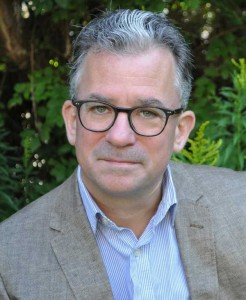 “The Great Reformer: Francis and the Making of a Radical Pope” by Austen Ivereigh is a must read!
“The Great Reformer: Francis and the Making of a Radical Pope” by Austen Ivereigh is a must read!
Shared from a unique vantage point, the insights Dr. Ivereigh provides are incredibly important for our times. He has an engaging writing style that offers vivid historical clarity to the issues and challenges which surround the pontificate of Pope Francis. In this book he beautifully places into context Jorge Mario Bergoglio’s upbringing, the events taking place in Latin America, his formation in Jesuit spirituality, and the Church’s life on the world stage.  When we can appreciate the Holy Father as operating from the role he is most comfortable with, that of a master spiritual director and one who seeks to “discern” God’s will in the classic sense, then many of the “reforms” and the actions surrounding their implementation, make sense. A fascinating conversation and an outstanding book. Don’t miss!
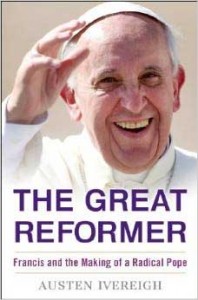 You can find the book here
You can find the book here
“Ivereigh has written the best available chronicle of the formative events in the life and thinking of Jorge Mario Bergoglio and demonstrates how his call for a ‘Church in permanent mission’ extends and deepens the ‘New Evangelization’ proclaimed by St. John Paul II.”—George Weigel, author of Evangelical Catholicism”
“Well written, full of information; this is the best biography of Pope Francis to date.”—Thomas Reese, Senior Analyst, National Catholic Reporter and author of Inside the Vatican: The Politics and Organization of the Catholic Church
“Probing, comprehensive, eminently readable and absorbing . . . In a growing list of books on the first Latin American pope, Ivereigh’s is uniquely well informed and persuasive.”—Charles J. Chaput, O.F.M. Cap., Archbishop of Philadelphia
This entry was posted on Tuesday, January 13th, 2015 at 12:31 pm
You can follow any responses to this entry through the RSS 2.0 feed.
Episode 11– A Century of Cataclysms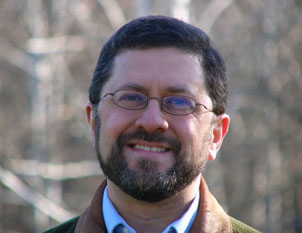
The Resilient Church with Mike Aquilina, offers a fascinating look at the trials and triumphs of the Catholic Church over the past two thousand years. Fast-paced sketches of critical periods in church history give readers perspective on the challenges faced by the church today. Mike Aquilina does not shrink from the realities of the past, including badly behaved leaders and those who betrayed the Lord. Yet he also leaves us all with well-founded hope for the future: God remains faithful in every circumstance and fulfills his promise to remain with his church always. Hosted by Kris McGregor
Also visit Mike’s “Discerning Hearts†page for more audio downloads and information!
Tags: catholic, catholic podcast, catholic prayer, cathollc spirituality
This entry was posted on Thursday, November 20th, 2014 at 4:58 pm
You can follow any responses to this entry through the RSS 2.0 feed.
I love “The Genesis of Science: How the Christian Middle Ages Launched the Scientific Revolution”! 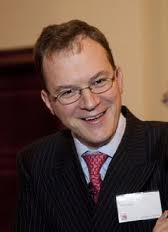 James Hannam has written a fascinating study of the Christian Middle Ages and its foundational importance to the science of our day. He’s brought back the important contributions of half-forgotten thinkers. James demonstrates how they were brought to such a state because of the political agendas of the last 500 years. Why is this important? Because it has everything to do with fundamental Truth, and what is ordered in the Universe. And at the heart, it is faith in God which drives science and it’s healthy functioning in society and culture. It was, and should be today, rooted in the Christian understanding of faith, reason, philosophy, theology and all the other things that round out the wholeness of the human person and the created world. Fascinating stuff indeed!
James Hannam has written a fascinating study of the Christian Middle Ages and its foundational importance to the science of our day. He’s brought back the important contributions of half-forgotten thinkers. James demonstrates how they were brought to such a state because of the political agendas of the last 500 years. Why is this important? Because it has everything to do with fundamental Truth, and what is ordered in the Universe. And at the heart, it is faith in God which drives science and it’s healthy functioning in society and culture. It was, and should be today, rooted in the Christian understanding of faith, reason, philosophy, theology and all the other things that round out the wholeness of the human person and the created world. Fascinating stuff indeed!
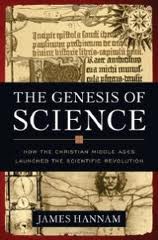 Be sure to visit James’ website.
Be sure to visit James’ website.
Click here to pick up a copy of the book
[powerpress]
Tags: catholic, catholic podcast, catholic prayer, cathollc spirituality
This entry was posted on Sunday, November 16th, 2014 at 7:11 pm
You can follow any responses to this entry through the RSS 2.0 feed.
“Making Sense of Saints: Fascinating Facts about Relics, Patrons, Saint-Making and More” by author Patricia Ann Kasten is a 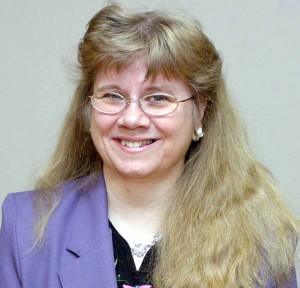 delightful book!  Not only is the canonization process fully illuminated, but Patricia has filled the book with fascinating stories and little known facts.   Everything you ever wanted to know, from the use of relics and holy cards to how miracles are determined can be found in this excellent book brought to us by publisher, Our Sunday Visitor.  A thoroughly engaging read. [powerpress]
delightful book!  Not only is the canonization process fully illuminated, but Patricia has filled the book with fascinating stories and little known facts.   Everything you ever wanted to know, from the use of relics and holy cards to how miracles are determined can be found in this excellent book brought to us by publisher, Our Sunday Visitor.  A thoroughly engaging read. [powerpress] 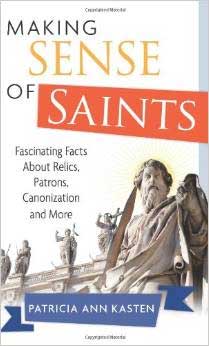 You can find the book here
You can find the book here
You’ll be fascinated and delighted by topics such as: Just Four Easy (Sort of) Steps: The Canonization Process “Doesn’t He Just Glow? Saints’ Symbols “There’s a Man Buried under the Altar!” Relics of Saints “Holy Haloes, God-Made Man!” Saints and Martyrs as Superheroes “Yo-ho-ho!” The Treasure Chest of the Church And much more!
Tags: catholic, catholic podcast, catholic prayer, cathollc spirituality
This entry was posted on Wednesday, September 17th, 2014 at 9:07 am
You can follow any responses to this entry through the RSS 2.0 feed.
Episode 5– Light in the Dark Ages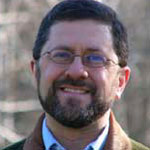
The Resilient Church with Mike Aquilina, offers a fascinating look at the trials and triumphs of the Catholic Church over the past two thousand years. Fast-paced sketches of critical periods in church history give readers perspective on the challenges faced by the church today. Mike Aquilina does not shrink from the realities of the past, including badly behaved leaders and those who betrayed the Lord. Yet he also leaves us all with well-founded hope for the future: God remains faithful in every circumstance and fulfills his promise to remain with his church always. Hosted by Kris McGregor
Also visit Mike’s “Discerning Hearts†page for more audio downloads and information!
Tags: catholic, catholic podcast, catholic prayer, cathollc spirituality
This entry was posted on Friday, August 1st, 2014 at 8:27 am
You can follow any responses to this entry through the RSS 2.0 feed.
Episode 3 – The Case for Christianity
[powerpress]
The Resilient Church with Mike Aquilina, offers a fascinating look at the trials and triumphs of the Catholic Church over the past two thousand years. Fast-paced sketches of critical periods in church history give readers perspective on the challenges faced by the church today. Mike Aquilina does not shrink from the realities of the past, including badly behaved leaders and those who betrayed the Lord. Yet he also leaves us all with well-founded hope for the future: God remains faithful in every circumstance and fulfills his promise to remain with his church always.
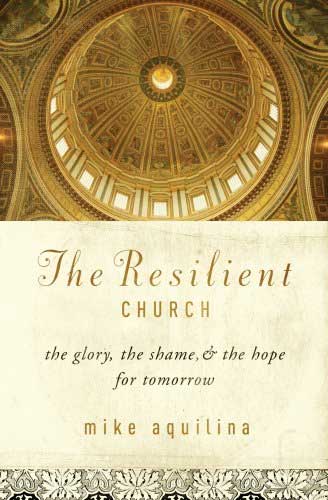 Pick up a copy of Mke’s book. You’ll find so much more and invaluable references and resoources, as well
Pick up a copy of Mke’s book. You’ll find so much more and invaluable references and resoources, as well
Also visit Mike’s “Discerning Hearts†page for more audio downloads and information!
Tags: catholic, catholic podcast, catholic prayer, cathollc spirituality
This entry was posted on Thursday, June 26th, 2014 at 10:47 am
You can follow any responses to this entry through the RSS 2.0 feed.
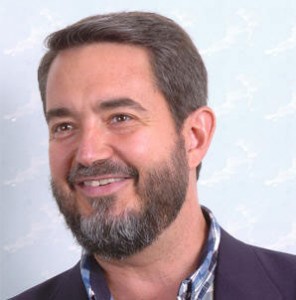 What a delight to once again speak with Dr. Scott Hahn, especially about his exceptionally important book  Evangelizing Catholics: A Mission Manual for the New Evangelization”. Who should have this book? Everyone!  Just the right mix for the adult Catholic to digest: part history book, part theology book, steeped in Scared Scripture, a sacramental feast,  anointed by the Holy Spirit…this work is just what the Church needs at this time.  If I had my way, every Catholic community would be passing out this book after mass even more eagerly than it does it’s parish bulletin! HIGHLY ENCOURAGED READING! [powerpress] Â
What a delight to once again speak with Dr. Scott Hahn, especially about his exceptionally important book  Evangelizing Catholics: A Mission Manual for the New Evangelization”. Who should have this book? Everyone!  Just the right mix for the adult Catholic to digest: part history book, part theology book, steeped in Scared Scripture, a sacramental feast,  anointed by the Holy Spirit…this work is just what the Church needs at this time.  If I had my way, every Catholic community would be passing out this book after mass even more eagerly than it does it’s parish bulletin! HIGHLY ENCOURAGED READING! [powerpress]  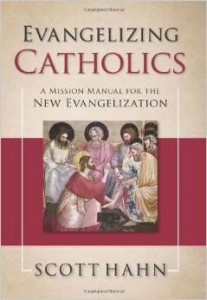 You can find the book here
You can find the book here
You can’t keep the faith unless you give it away. That’s a fact. To be a Christian is to be an evangelizer. When the Catholic Church calls us to a “New Evangelization,” that’s  simply a reminder to us of what has always been true. The good news is: you can do it – you can evangelize – and Scott Hahn shows you how. In this this very practical “mission manual” Dr. Hahn equips you with: A guide to understanding what the New Evangelization is, and who it’s really for A roadmap that leads you to where it all happens (hint: it’s closer than you think) A simple, beautiful message to share – in words and actions You don’t need esoteric knowledge. You don’t need to master a new set of skills. Evangelization, for Catholics, is simply friendship raised up to the highest level. Enter a deeper friendship with Christ, and you’ll want to share his companionship more and more with a wider circle of friends.
Tags: catholic, catholic podcast, catholic prayer, cathollc spirituality, dr scott hahn, Evangelizing Catholics, scott hahn
This entry was posted on Friday, May 30th, 2014 at 5:05 pm
You can follow any responses to this entry through the RSS 2.0 feed.
Episode 1 – History, with Arms Upraised
[powerpress]
The Resilient Church with Mike Aquilina, offers a fascinating look at the trials and triumphs of the Catholic Church over the past two thousand years. Fast-paced sketches of critical periods in church history give readers perspective on the challenges faced by the church today. Mike Aquilina does not shrink from the realities of the past, including badly behaved leaders and those who betrayed the Lord. Yet he also leaves us all with well-founded hope for the future: God remains faithful in every circumstance and fulfills his promise to remain with his church always.
 Pick up a copy of Mke’s book. You’ll find so much more and invaluable references and resoources, as well
Pick up a copy of Mke’s book. You’ll find so much more and invaluable references and resoources, as well
Also visit Mike’s “Discerning Hearts†page for more audio downloads and information!
Tags: catholic, catholic podcast, catholic prayer, cathollc spirituality, church history, mike aquilina, Resilient Church
This entry was posted on Thursday, May 15th, 2014 at 9:19 am
You can follow any responses to this entry through the RSS 2.0 feed.
Fr. Maciej Zieba, OP offers tremendous insight and a wonderful resource in understanding the heart of Catholic 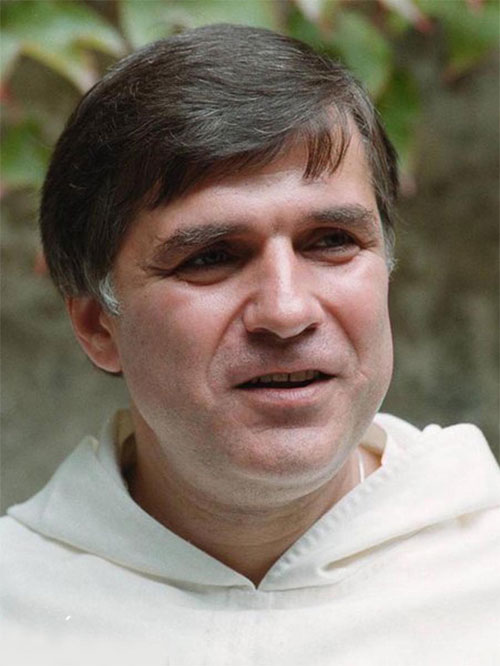 Social Teaching in regards to democratic capitalism.  In Papal Economics: The Catholic Church on Democratic Capitalism, from Rerum Novarum to Caritas in Veritate, he gives an overview the key social encyclicals  from Leo XIII’s Rerum Novarum (1891), through John Paul II’s Centesimus Annus a century later, and finally to Benedict XVI’s Caritas in Veritate (2009). While demonstrating the continuity among the popes,  this work also reveals that the Church’s teaching has evolved in certain key respects—particularly in its judgment on socialism.  Fr. Zieba, a close associate of Pope John Paul II.  He was a key player in the Polish Solidarity movement and is the director of the European Solidarity Center and the founder of the Tertio Millennio Institute in Poland.
Social Teaching in regards to democratic capitalism.  In Papal Economics: The Catholic Church on Democratic Capitalism, from Rerum Novarum to Caritas in Veritate, he gives an overview the key social encyclicals  from Leo XIII’s Rerum Novarum (1891), through John Paul II’s Centesimus Annus a century later, and finally to Benedict XVI’s Caritas in Veritate (2009). While demonstrating the continuity among the popes,  this work also reveals that the Church’s teaching has evolved in certain key respects—particularly in its judgment on socialism.  Fr. Zieba, a close associate of Pope John Paul II.  He was a key player in the Polish Solidarity movement and is the director of the European Solidarity Center and the founder of the Tertio Millennio Institute in Poland.
[powerpress]
You can find the book here
“For a long time to come, this book may well be the definitive work on the economic teaching of the modern popes.” —Michael Novak
“Powerful . . . Should move the Catholic discussion of twenty-first-century economics beyond the familiar refrains†—George Weigel
Tags: catholic social teaching, Maciej Zieba, Rerum Novarum
This entry was posted on Sunday, January 26th, 2014 at 12:09 am
You can follow any responses to this entry through the RSS 2.0 feed.
 “Roman Pilgrimage: The Station Churches” is a stunning work.  A must have for those who love beauty, the heritage of the Catholic faith, and the celebration and depth of the Church’s liturgy.  The lives of the saints and martyrs come alive in this work which features the spiritual reflections of theologian George Weigel, the exquisite artistic insights of art historian Elizabeth Lev, and the beautiful photography of Stephen Weigel.  George opens with the history of the practice of visiting the tombs of Christian martyrs  which began in the 4th century.  No one tells a story quite like he does. The pilgrimage would eventually evolve into a journey to churches, basilicas, and cathedrals throughout the city of the Saints.  Through this work, in a very real way,  the gift of Rome comes to meet in your home.  The spiritual contemplations are not only ideal for Lenten devotion, but are excellent for any time of the year.  A gift to give to yourself and to anyone you may care about who is traveling the pilgrimage of faith.
“Roman Pilgrimage: The Station Churches” is a stunning work.  A must have for those who love beauty, the heritage of the Catholic faith, and the celebration and depth of the Church’s liturgy.  The lives of the saints and martyrs come alive in this work which features the spiritual reflections of theologian George Weigel, the exquisite artistic insights of art historian Elizabeth Lev, and the beautiful photography of Stephen Weigel.  George opens with the history of the practice of visiting the tombs of Christian martyrs  which began in the 4th century.  No one tells a story quite like he does. The pilgrimage would eventually evolve into a journey to churches, basilicas, and cathedrals throughout the city of the Saints.  Through this work, in a very real way,  the gift of Rome comes to meet in your home.  The spiritual contemplations are not only ideal for Lenten devotion, but are excellent for any time of the year.  A gift to give to yourself and to anyone you may care about who is traveling the pilgrimage of faith.
[powerpress]
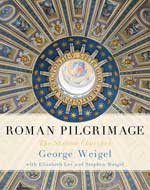 You can find the book here
You can find the book here
Fr. Robert Barron, Rector-President, Mundelein Seminary
“An astonishingly good book. George Weigel’s meditations on the liturgical texts of Lent and Easter are intellectually rich, spiritually alert, and rendered in beautifully crafted prose; Elizabeth Lev’s examinations of the station churches themselves are always informative, insightful, and witty. Equally impressive are Stephen Weigel’s artfully composed photographs. Roman Pilgrimage will delight your eye and feed your soul.â€
Timothy Cardinal Dolan, Archbishop of New York
“On cold, damp, late-winter early mornings, hundreds of priests, seminarians, sisters, and devoted lay people walk the Roman cobblestones to one of the Eternal City’s forty most venerable sites, the station church of that Lenten day. It’s a microcosm of the pilgrim Church and of life’s journey, and Easter is never brighter than after faithfully completing this sixteen-century-old pilgrimage tradition.â€
Tags: Mundelein Seminary, New York, Timothy Cardinal Dolan, work
This entry was posted on Friday, November 8th, 2013 at 3:24 pm
You can follow any responses to this entry through the RSS 2.0 feed.
“Good Pope, Bad Pope: Their Lives, Our Lesson” is another terrific book by the prolific Mike Aquilina.  This is a much needed  resource for all Catholics.  Those of us who love and appreciate the gift of the Papacy in the life of the Church, if we are honest with ourselves, cringe a bit inside when the facts of history uncover those Popes who were…well…bad.  Leave it to Mike Aquilina to guide us through those notorious lives and times, while helping  us to see the lesson we can learn from those particular experiences.  Mike also lifts up those outstanding men who were more than just “good” Popes (which the overwhelming majority were), but reminds of  popes like Bl. John Paul II,  who could be called “great”.  Be not afraid of history, especially when its in the hands of Mike Aquilina.
resource for all Catholics.  Those of us who love and appreciate the gift of the Papacy in the life of the Church, if we are honest with ourselves, cringe a bit inside when the facts of history uncover those Popes who were…well…bad.  Leave it to Mike Aquilina to guide us through those notorious lives and times, while helping  us to see the lesson we can learn from those particular experiences.  Mike also lifts up those outstanding men who were more than just “good” Popes (which the overwhelming majority were), but reminds of  popes like Bl. John Paul II,  who could be called “great”.  Be not afraid of history, especially when its in the hands of Mike Aquilina.
[powerpress]
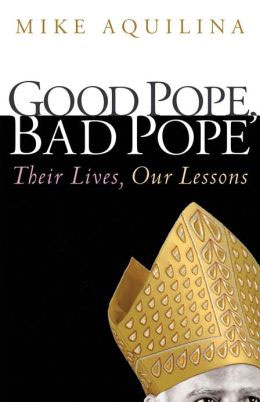 You can find the book here
You can find the book here
From the description:
Every pope is by definition a remarkable man. But the popes whose stories you’ll read here were chosen because they reveal how the papacy developed. They show us how Christ kept his promise to his bride, the Church, not only in her health but also in her sickness. The great popes advanced our understanding of Christian doctrine. But even more remarkable, the worst popes could do nothing to damage the teaching of the Church.
That’s why, even in its darkest moments, the story of the papacy is a story of triumph. And that’s why it’s worth knowing these twelve popes.
Tags: catholic, catholic podcast, catholic prayer
This entry was posted on Wednesday, October 9th, 2013 at 9:26 am
You can follow any responses to this entry through the RSS 2.0 feed.

